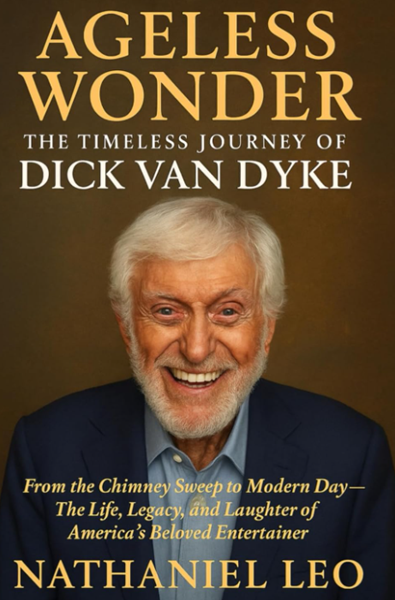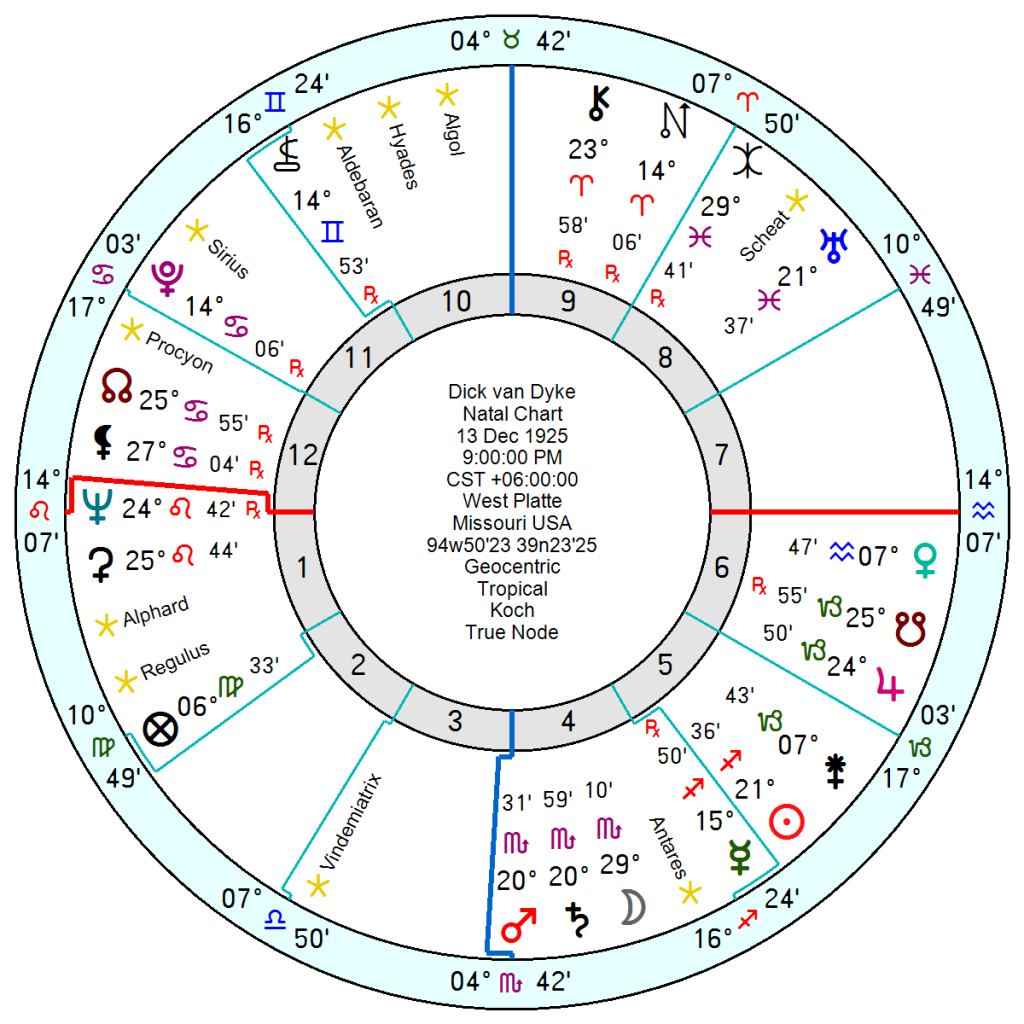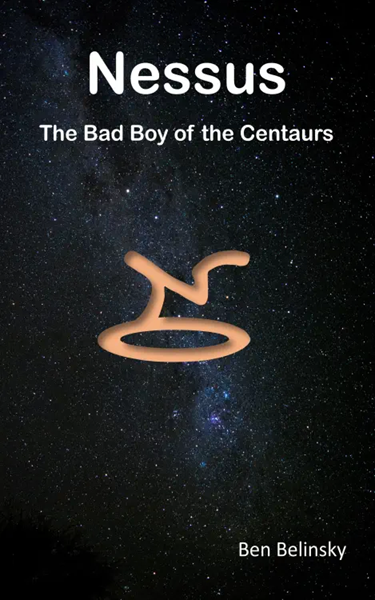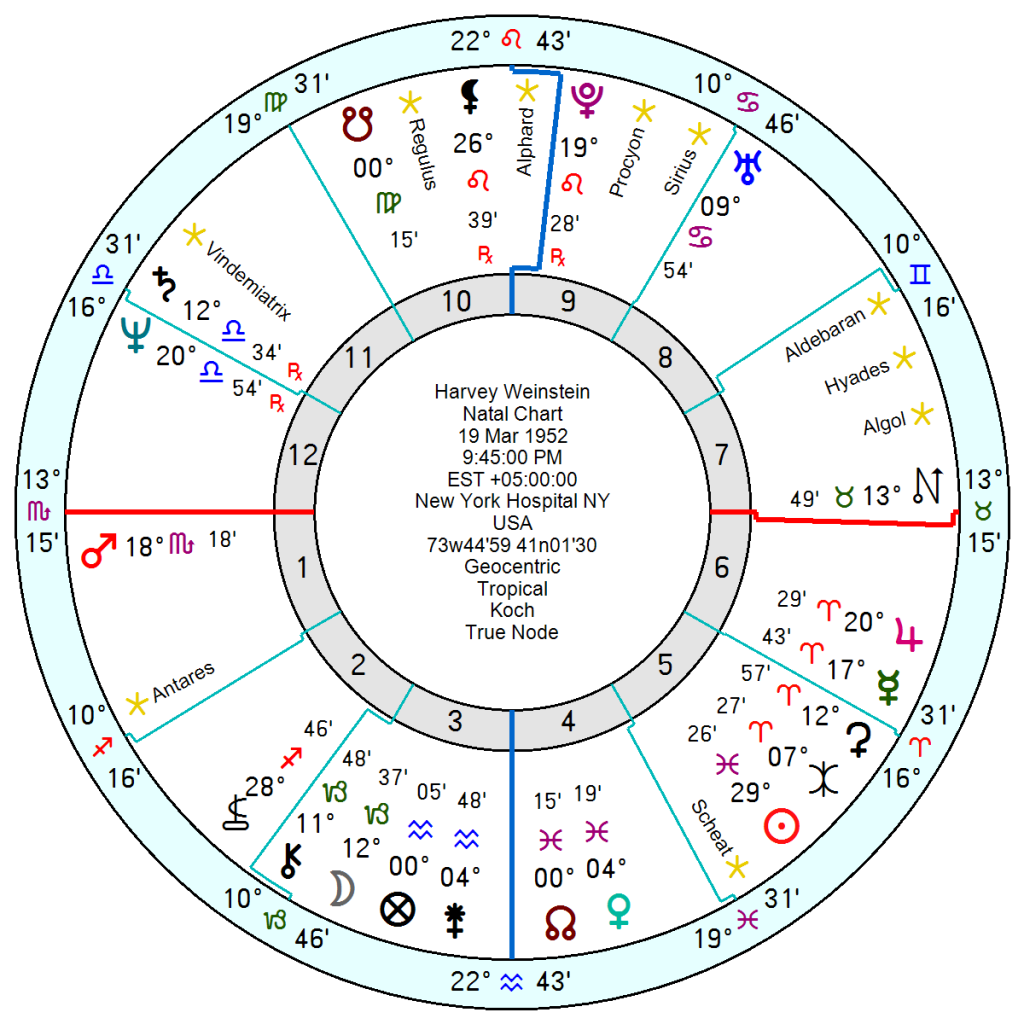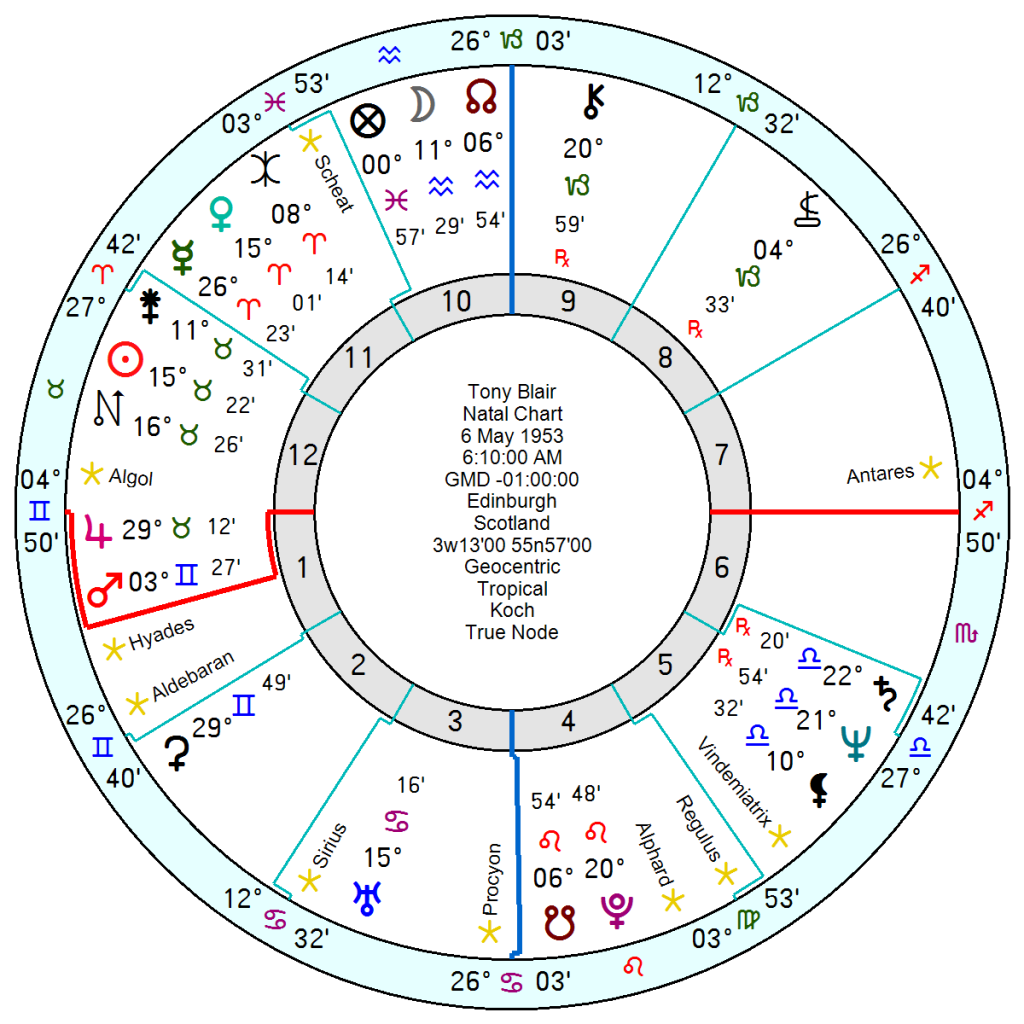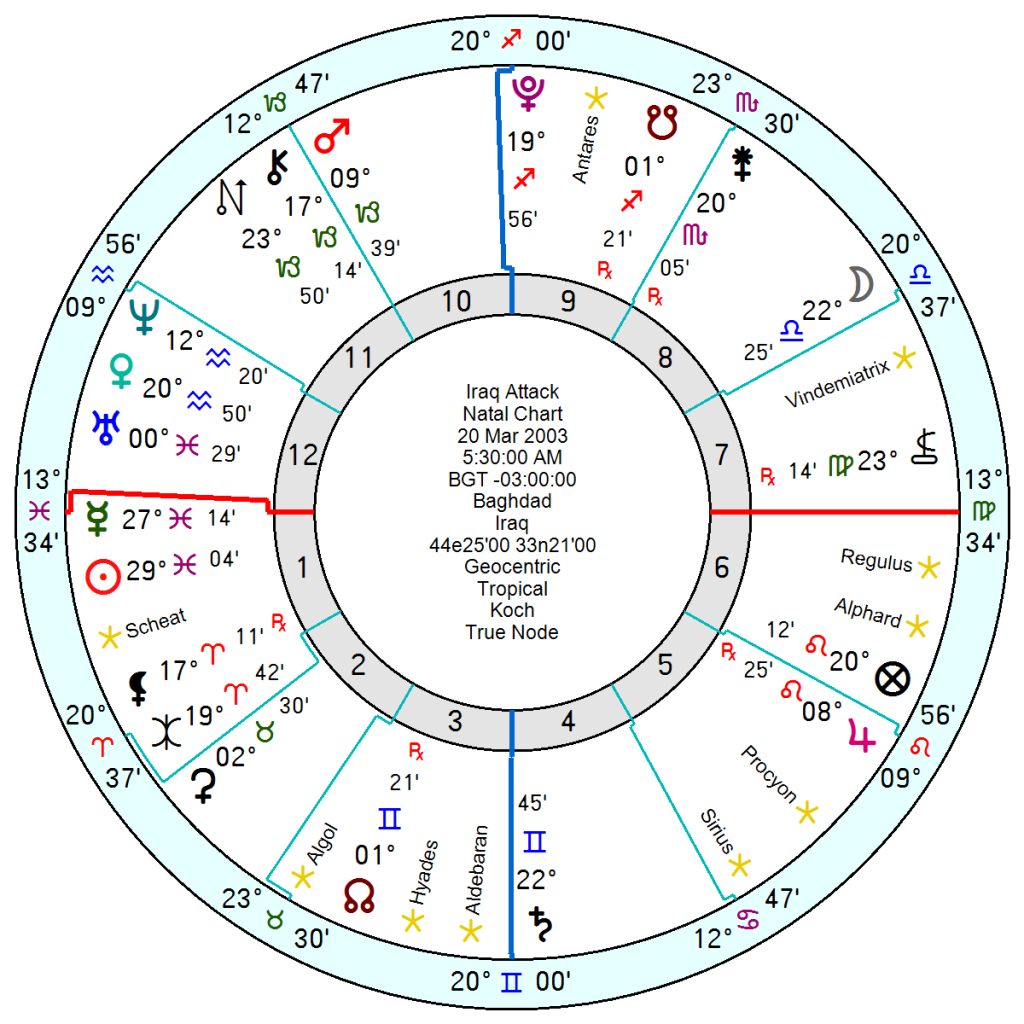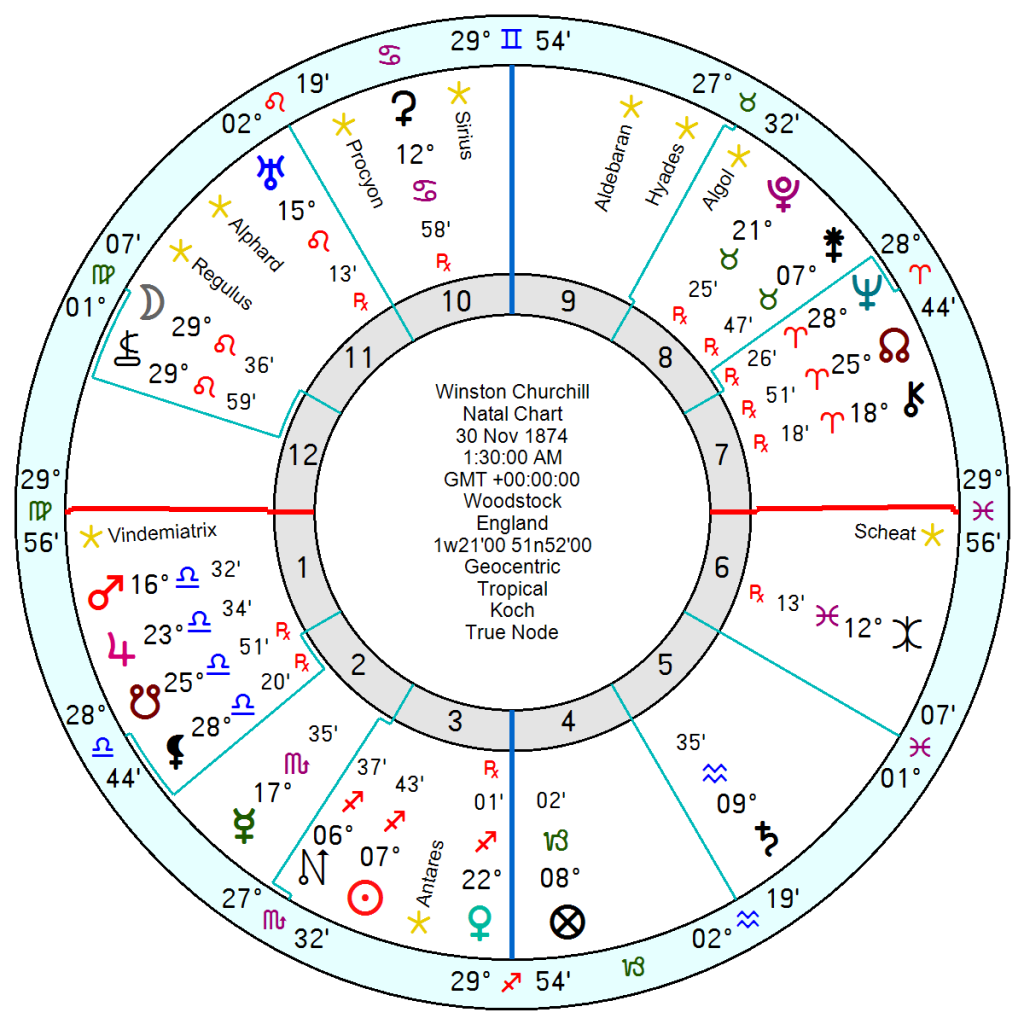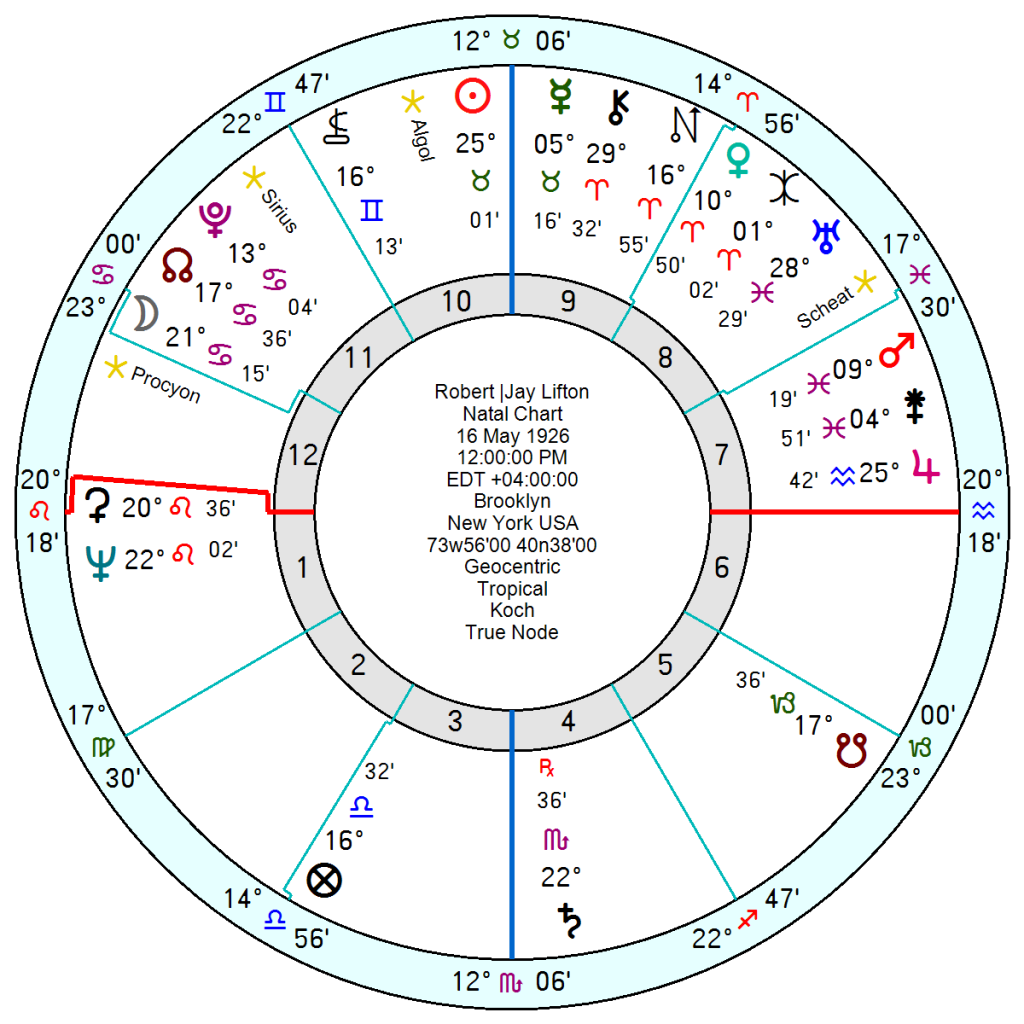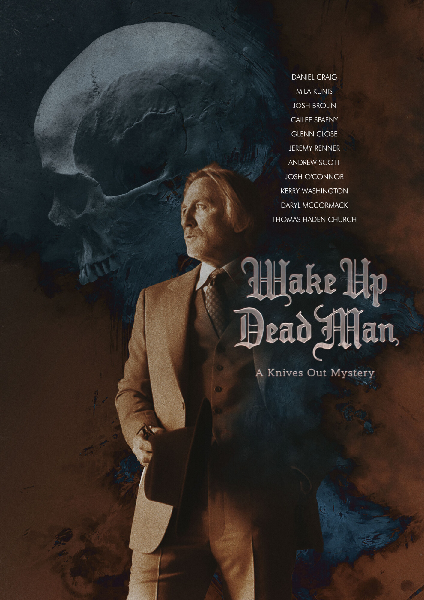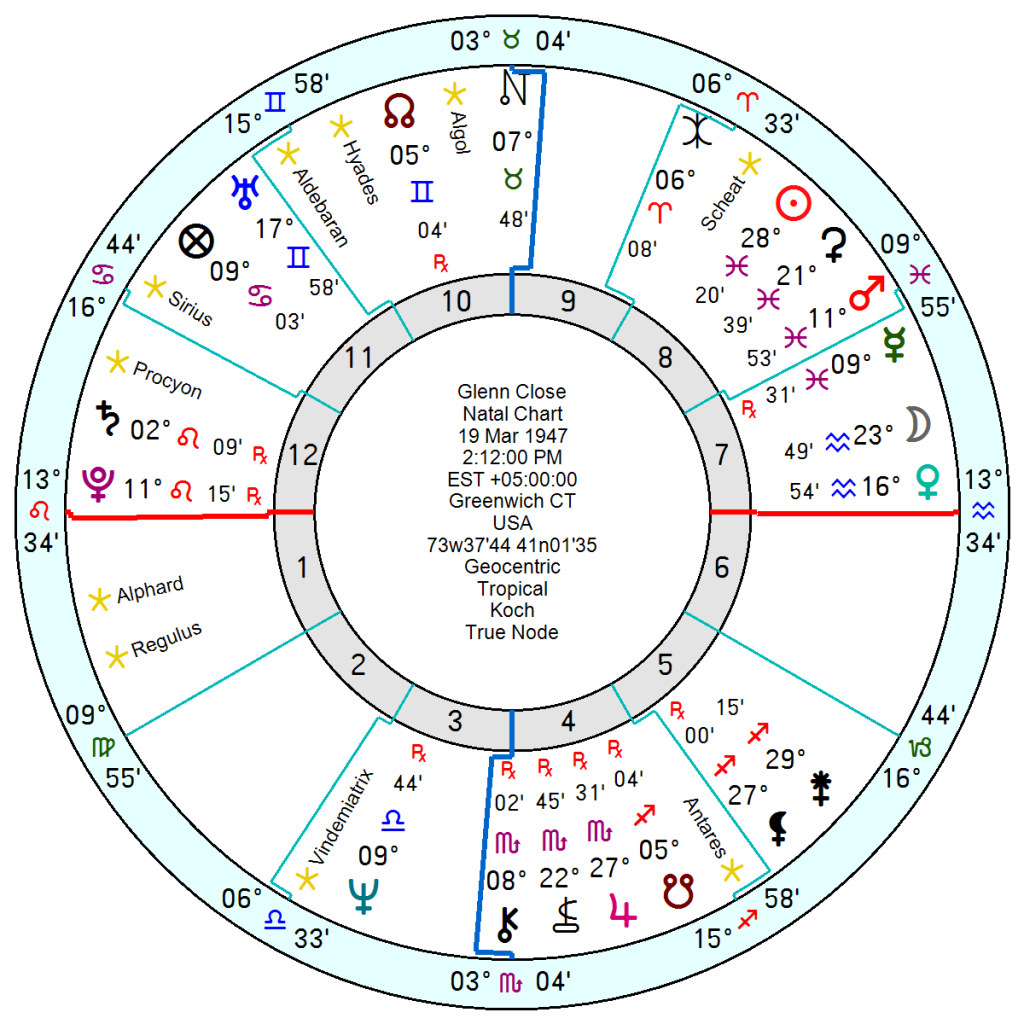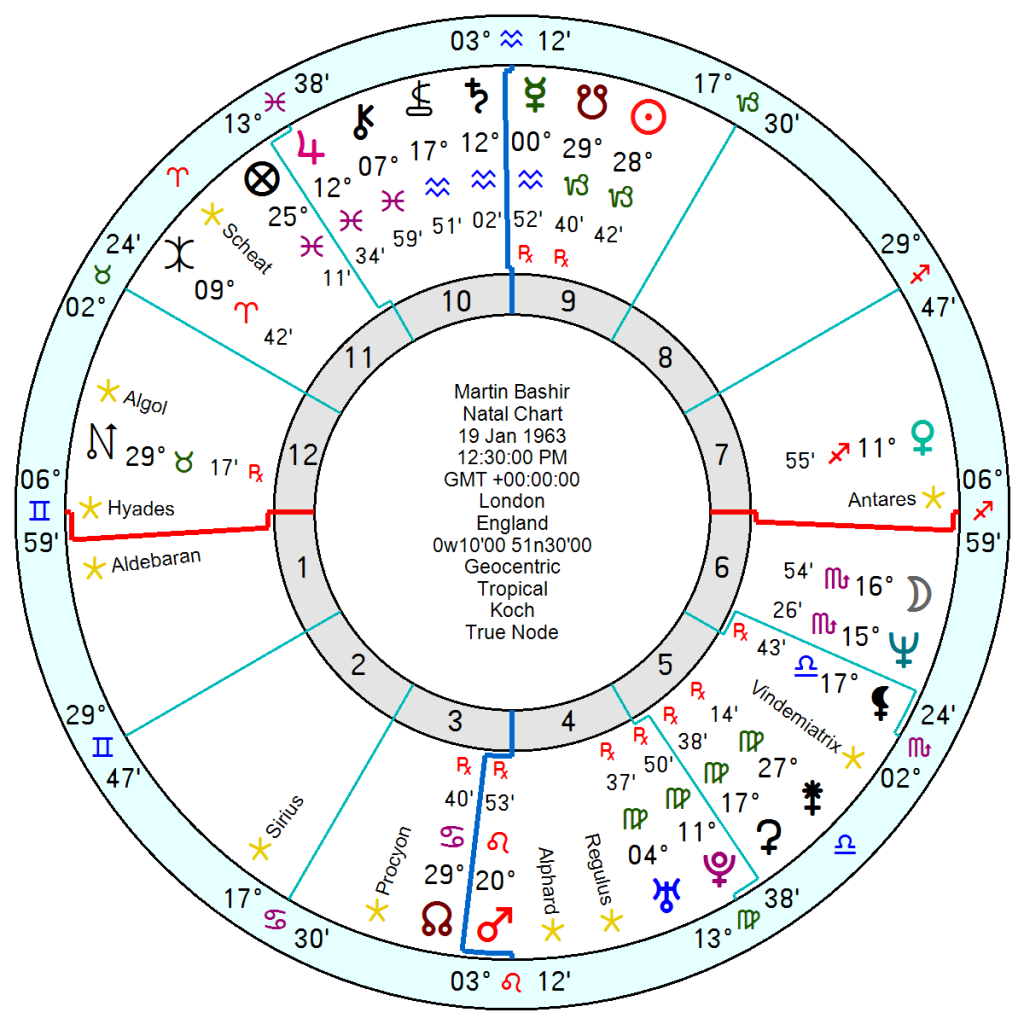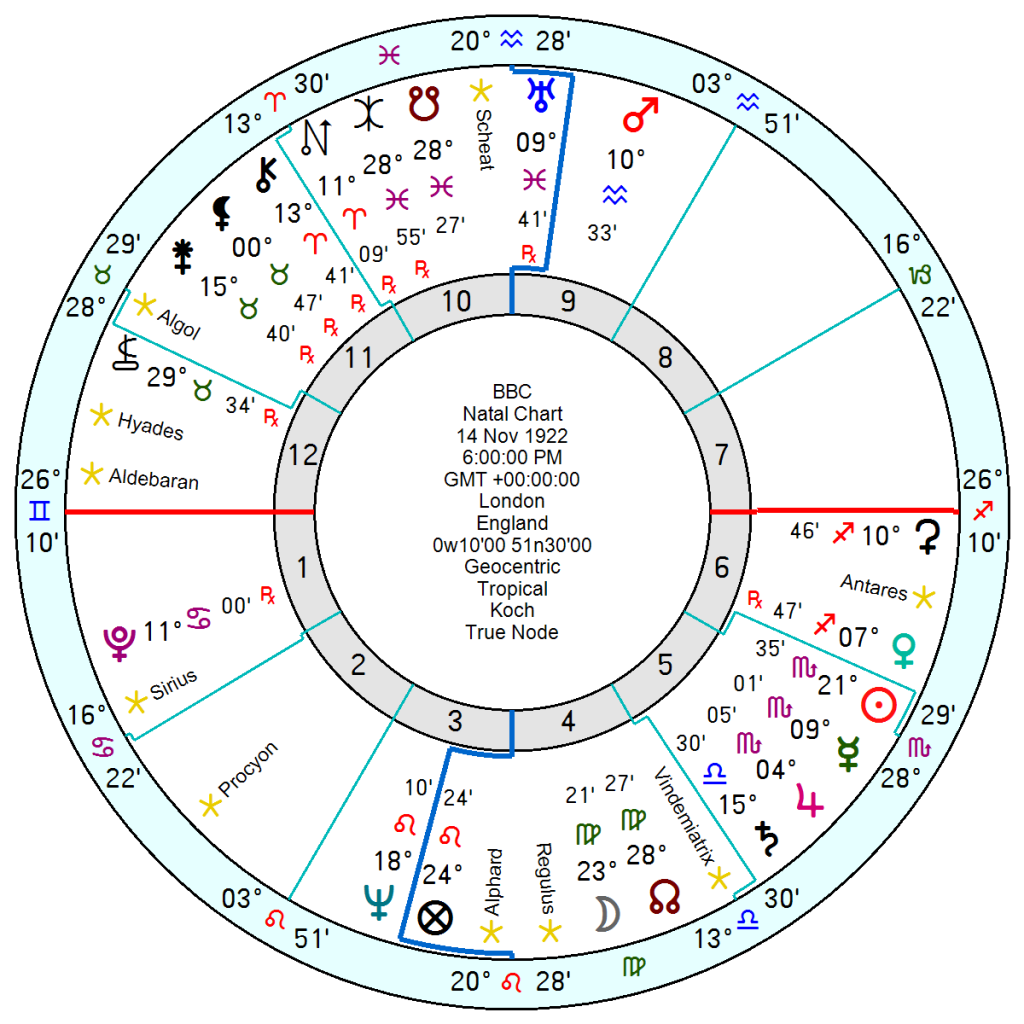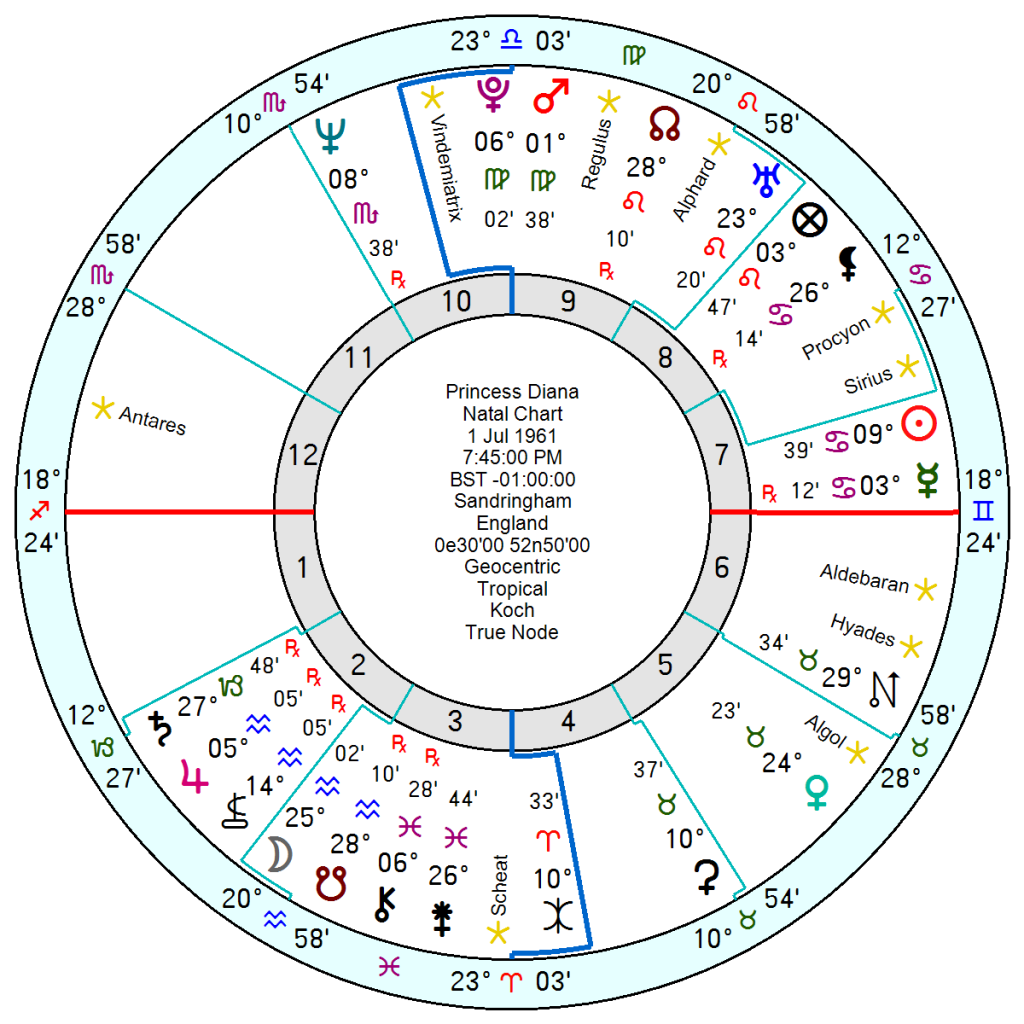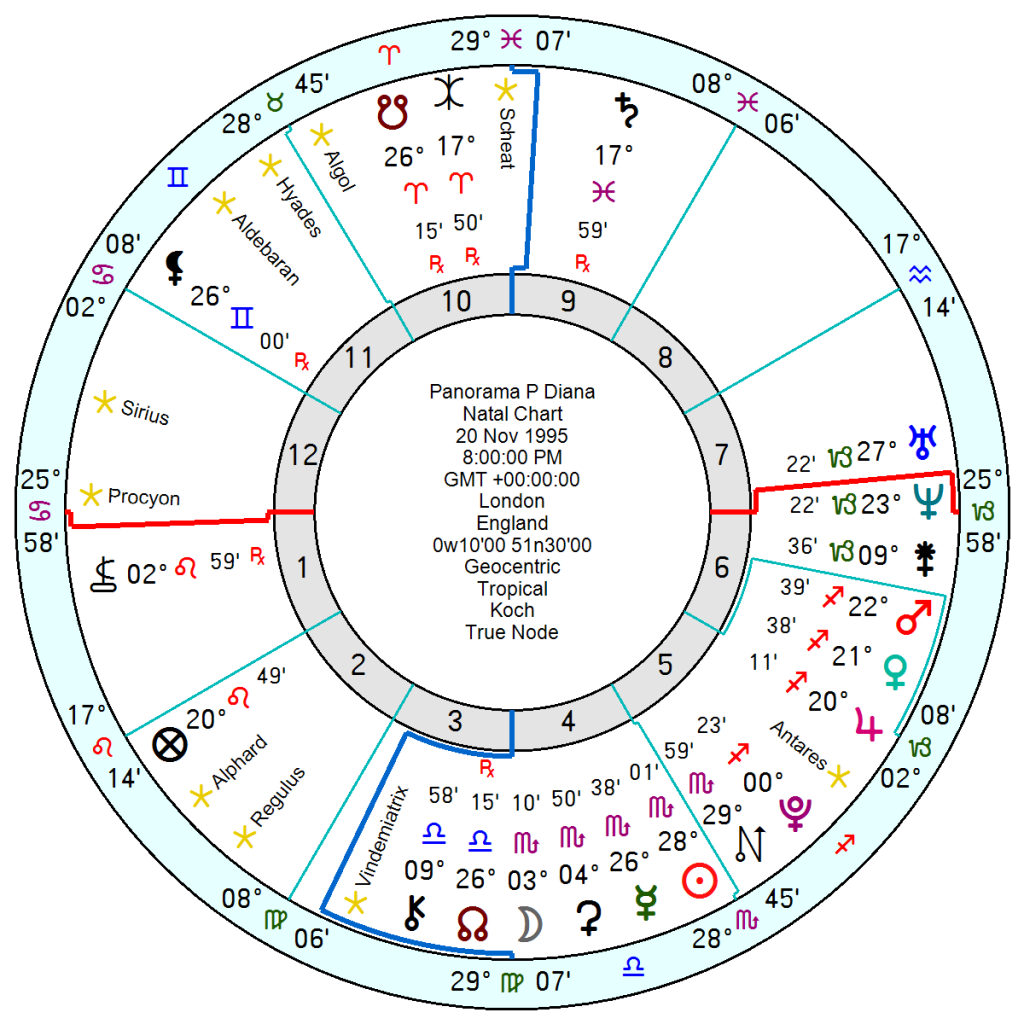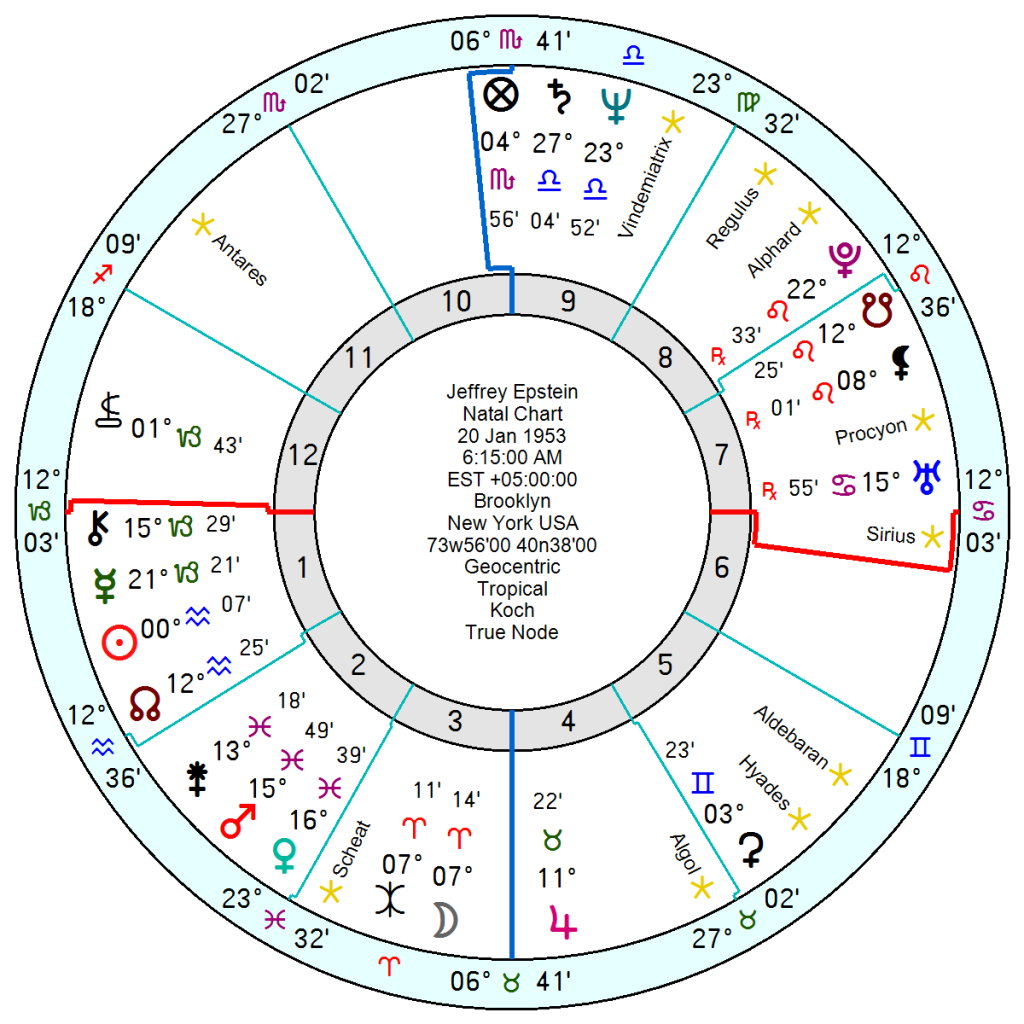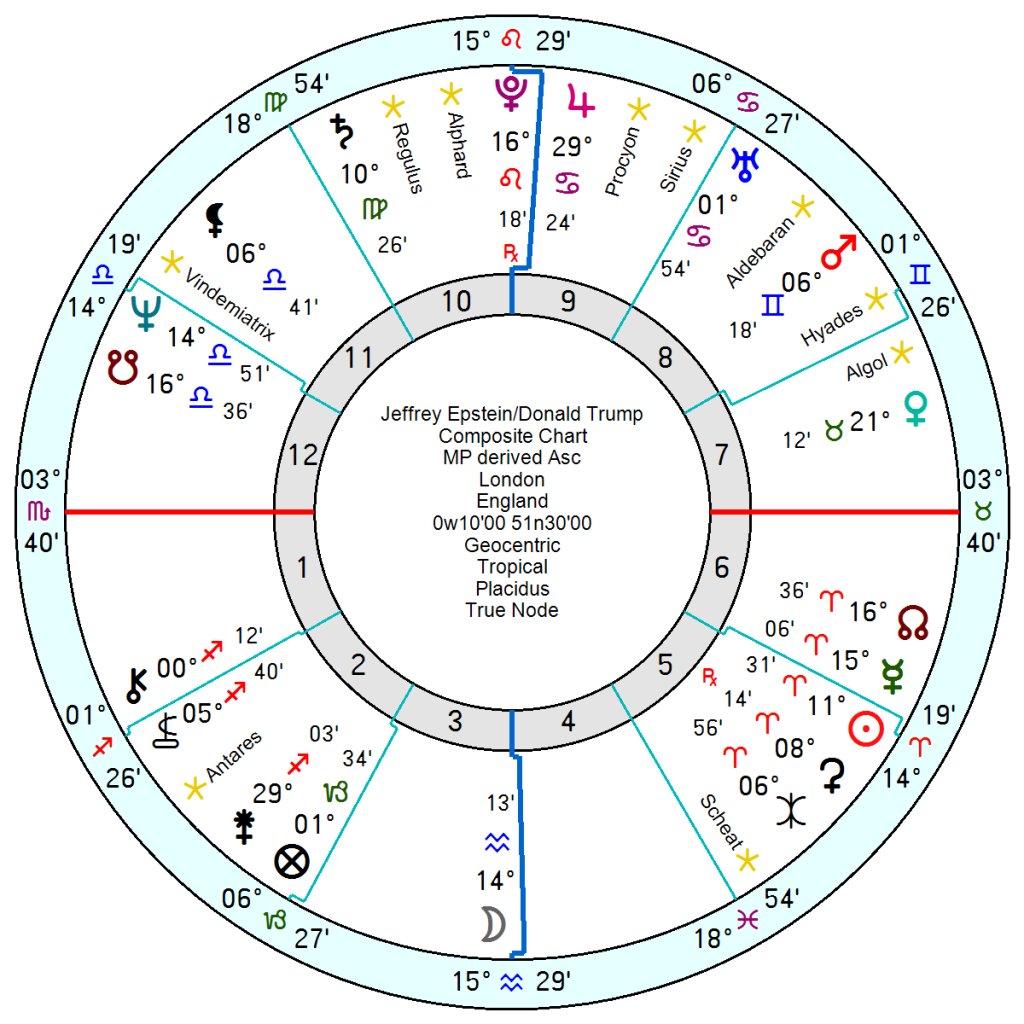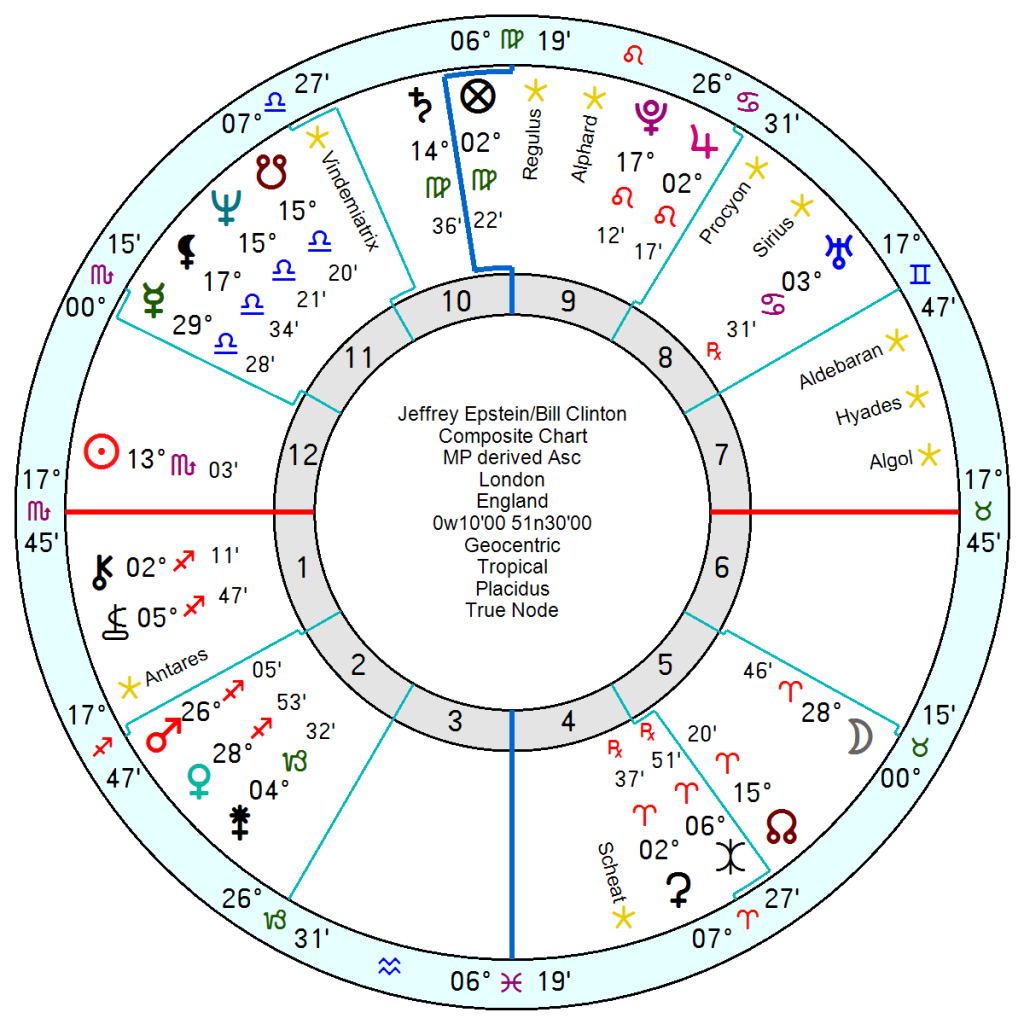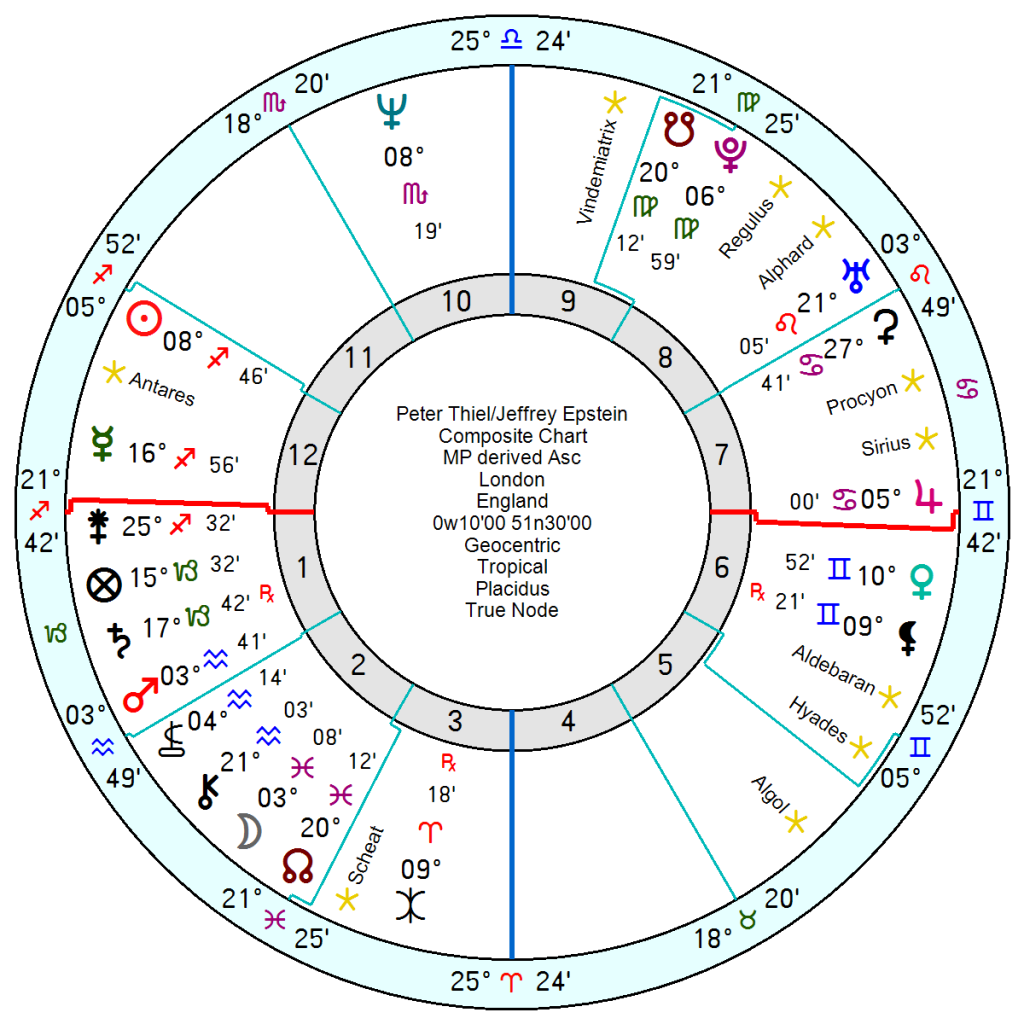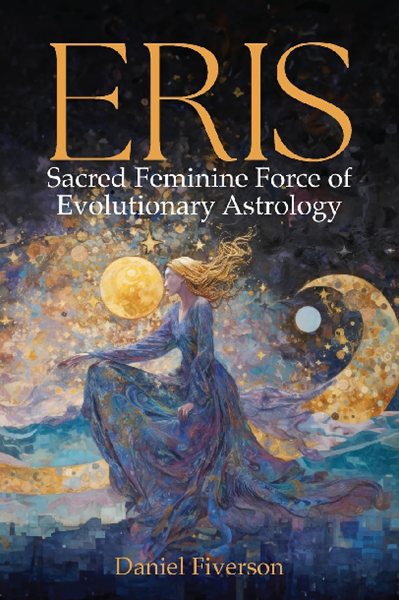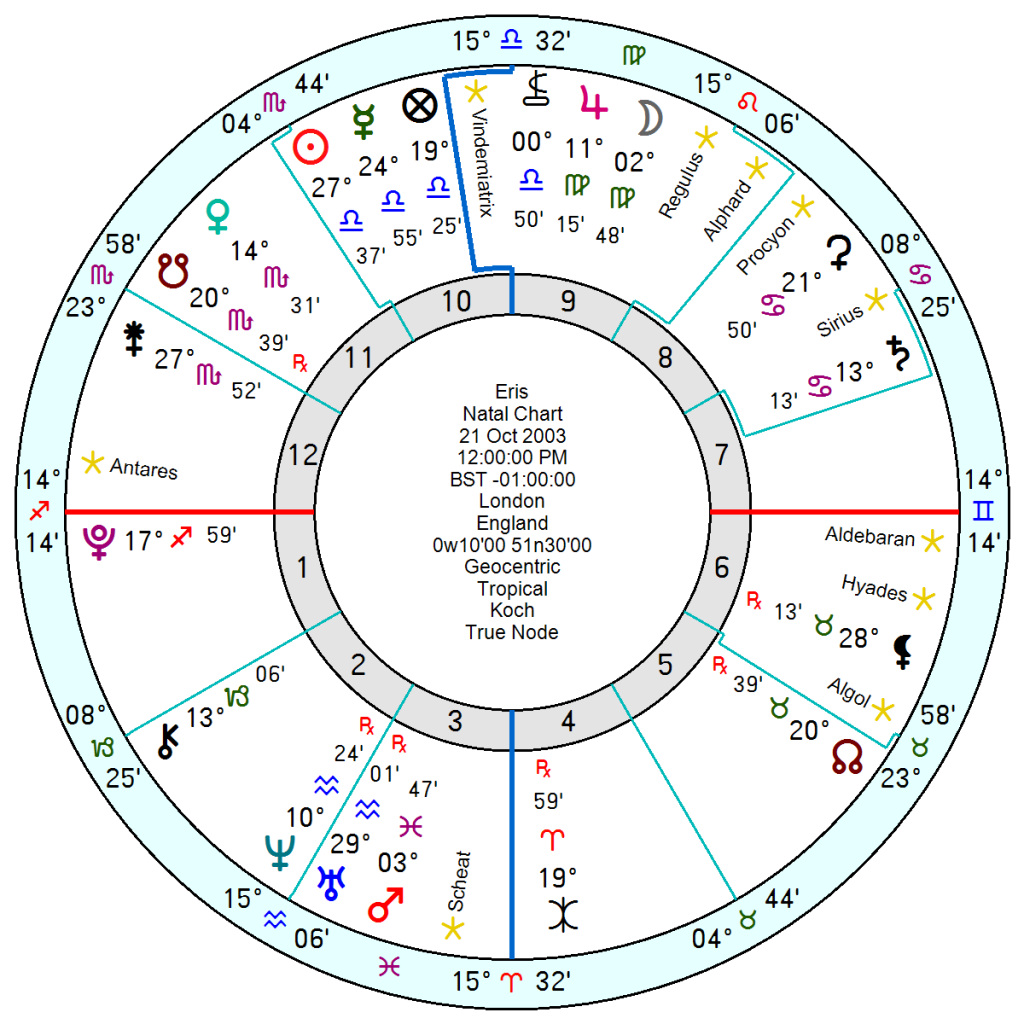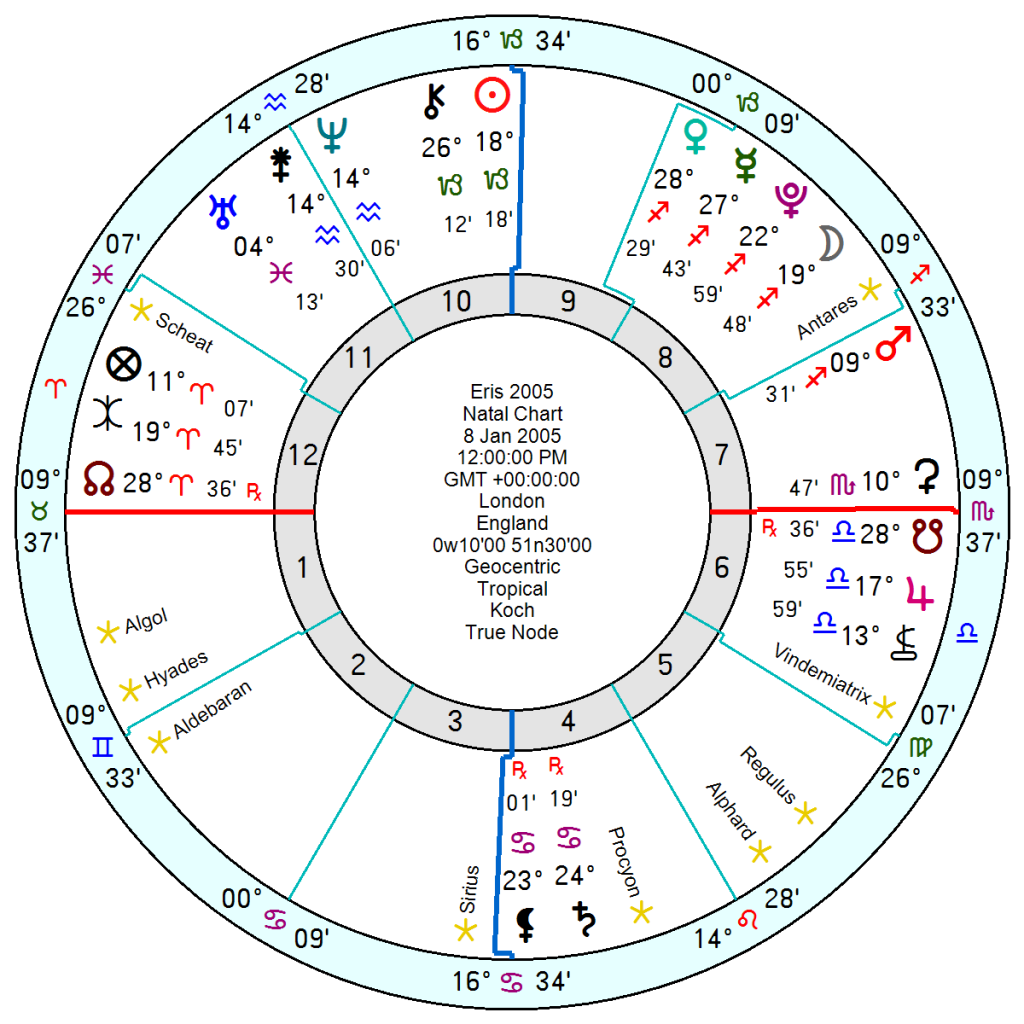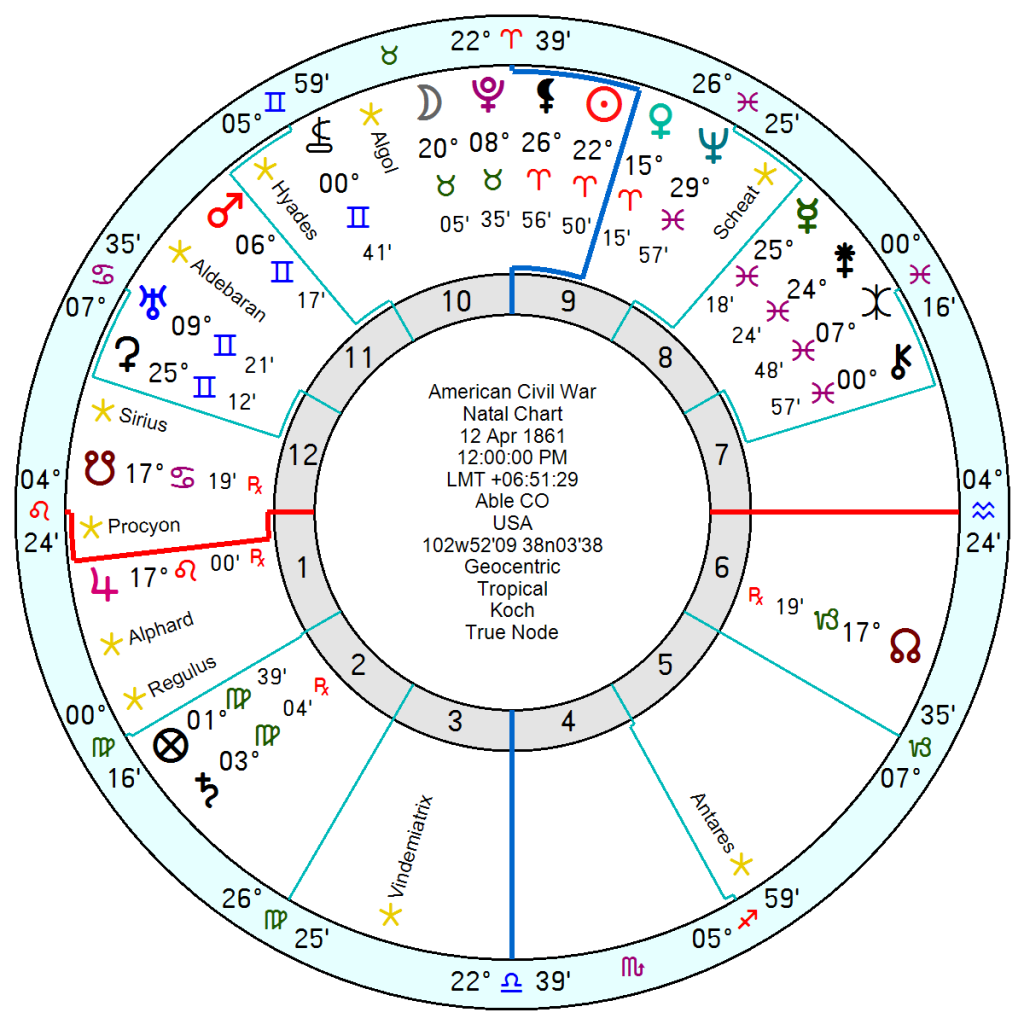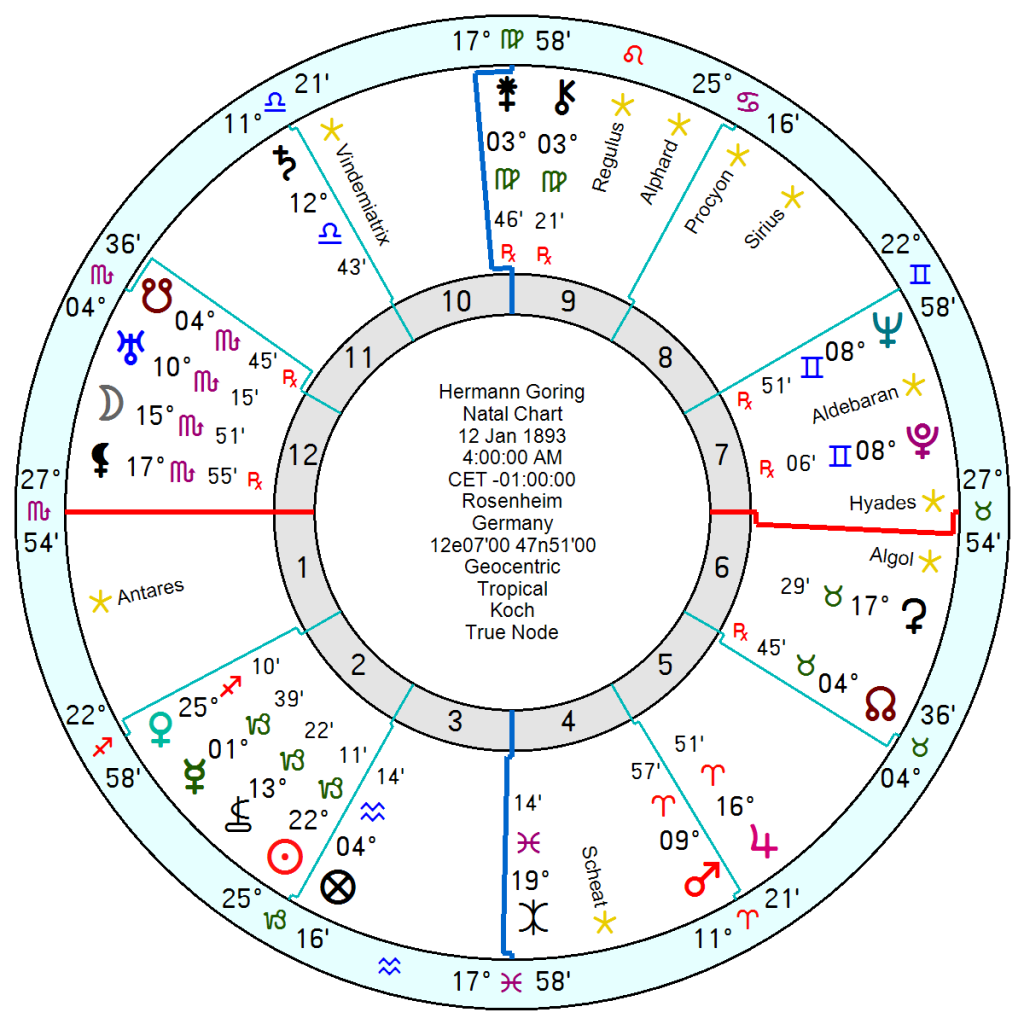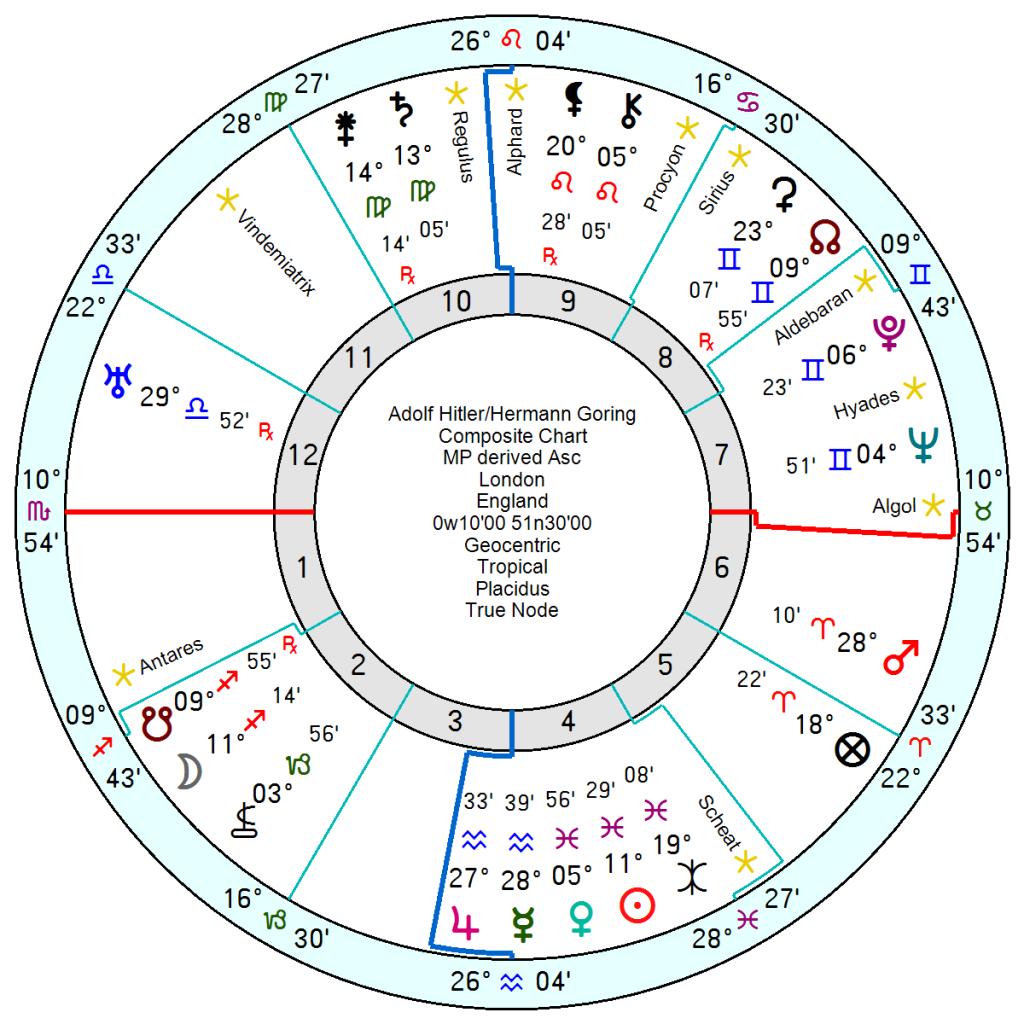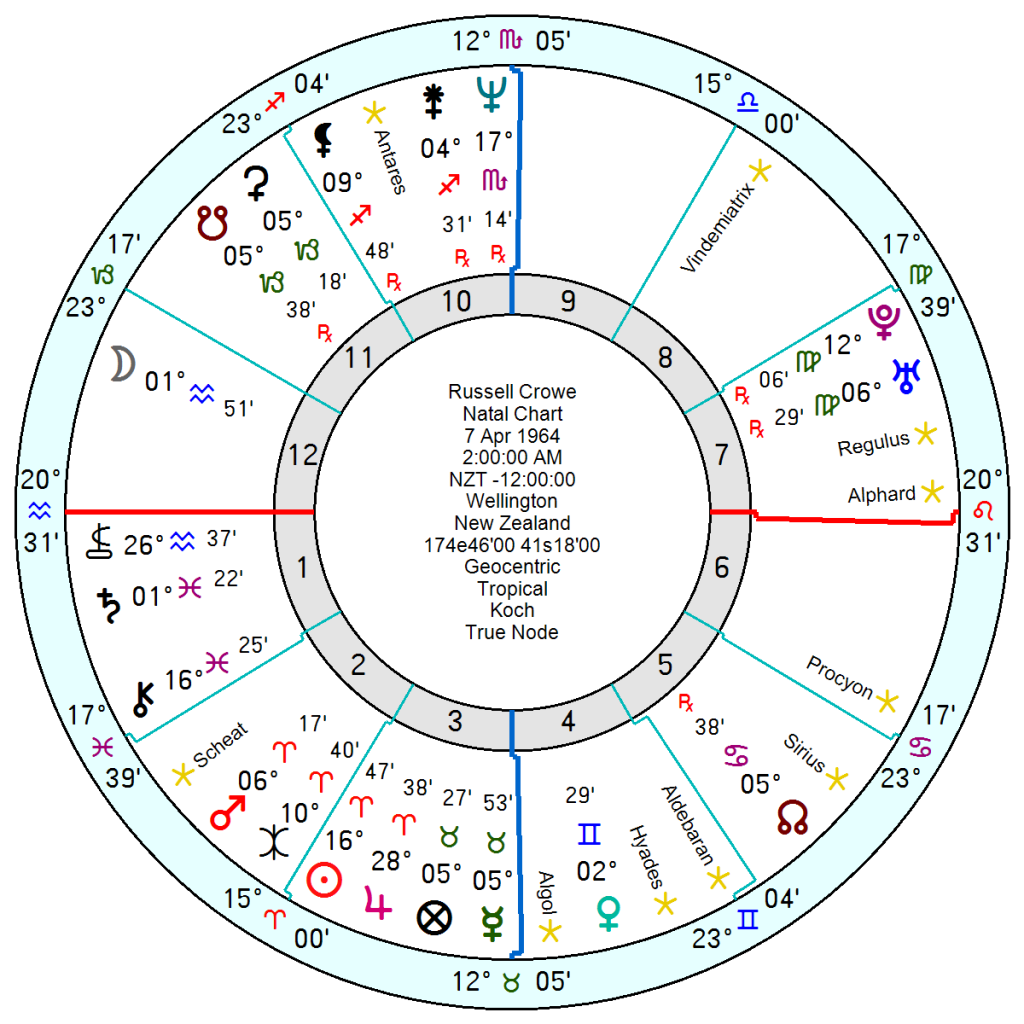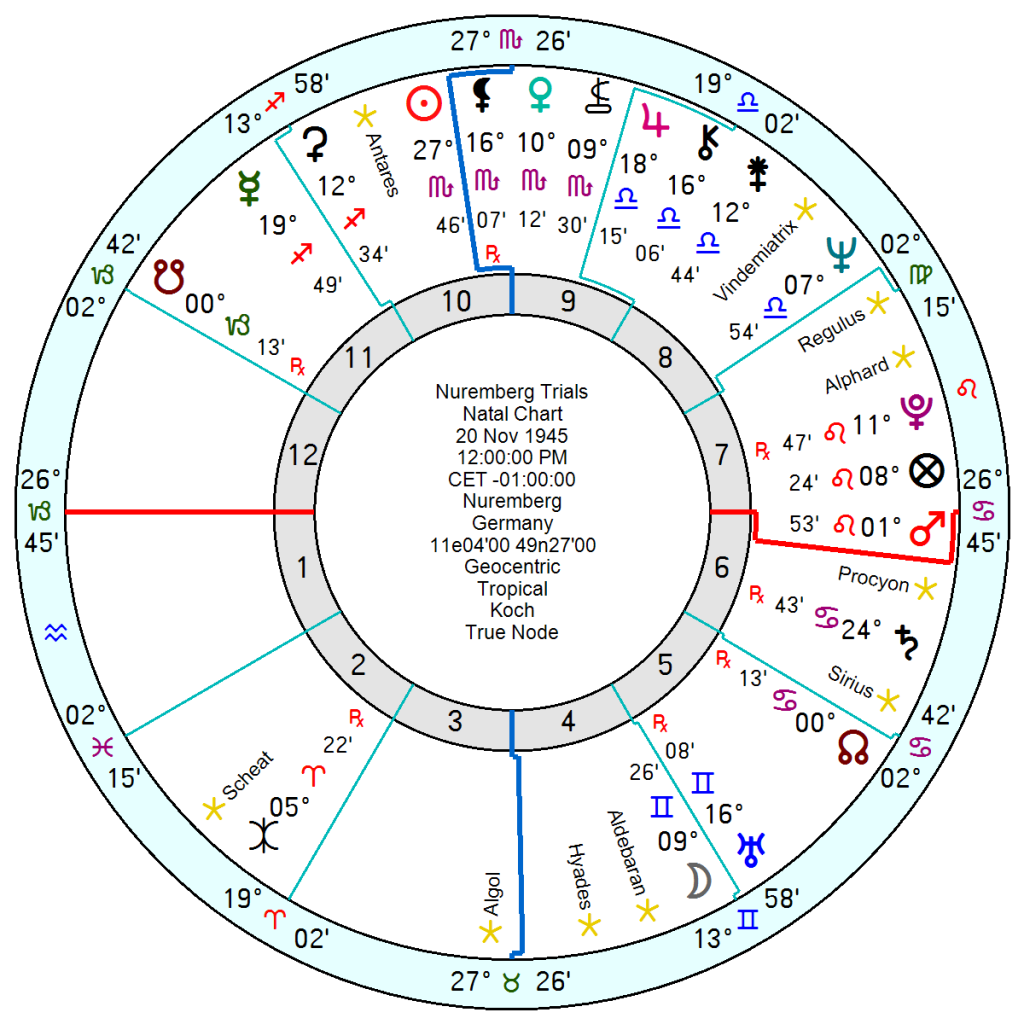
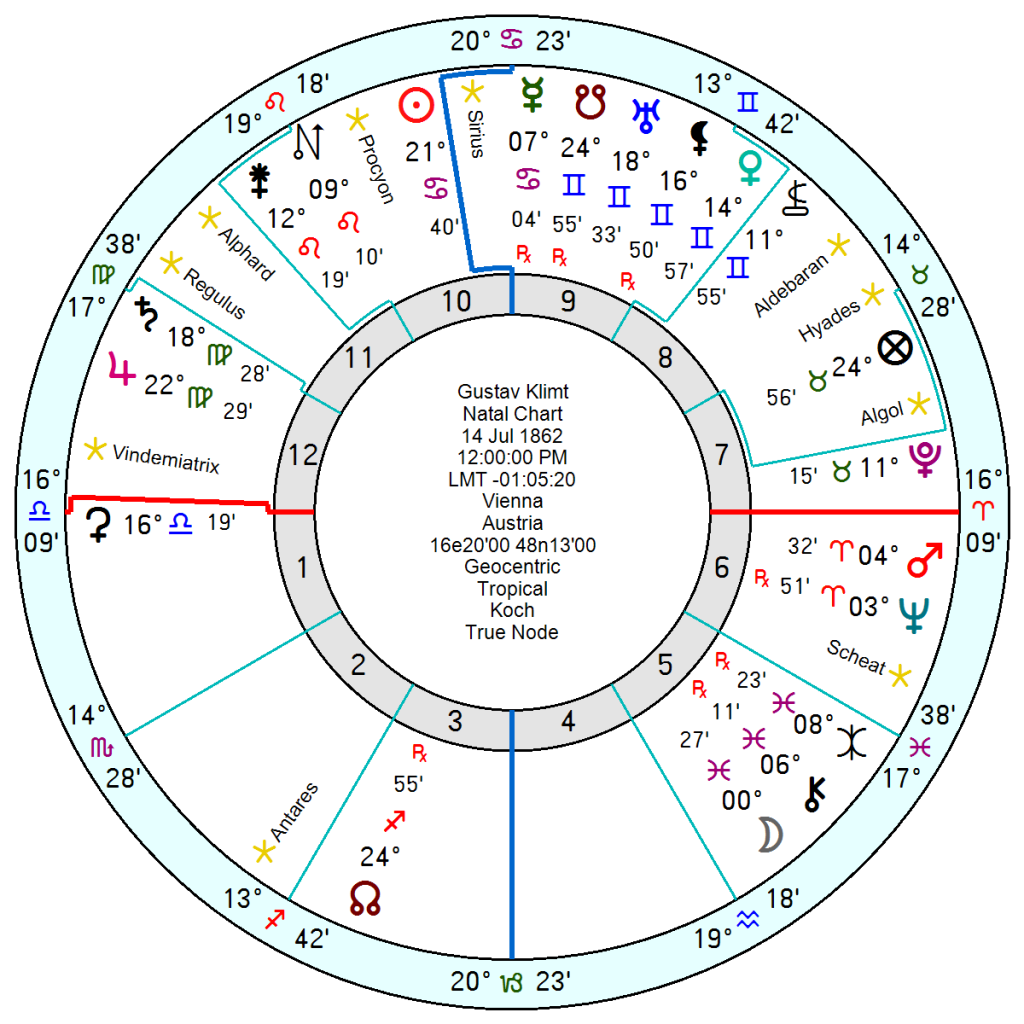
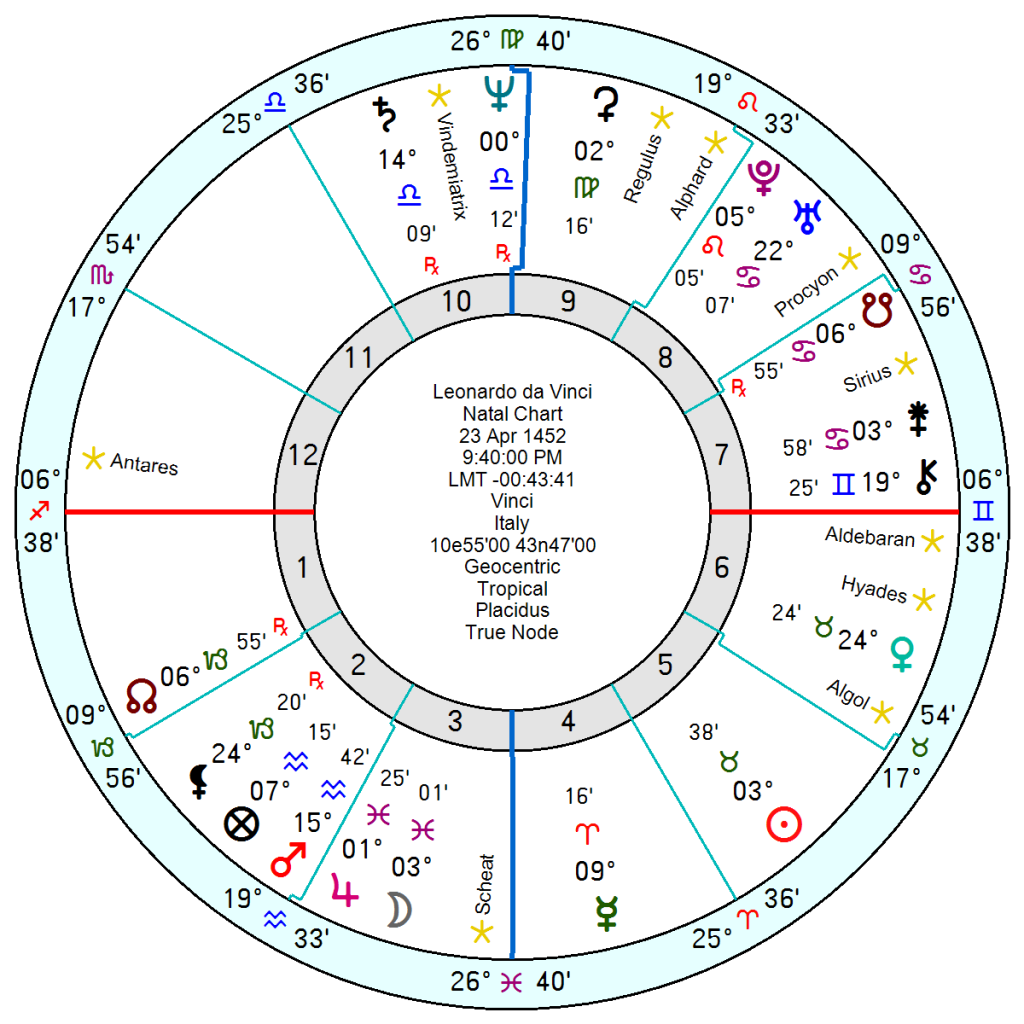
A Gustav Klimt painting, nearly destroyed in a fire in WW11 when looted by the Nazis, has sold for a record-breaking $236.4m. Latterly it had been owned by the Estee Lauder heir.
Klimt born 14 July 1862, Vienna, Austria, after a conventional start painting murals, became famous as a “painter of women”. ‘Eros, sexuality and femininity were variously interpreted by him as alluring danger. Life, love, and death can be determined as the important themes of his work.’ His work helped define the Art Nouveau style in Europe.
In real life he had many relationships with women and fathered at least fourteen children.
He grew up in poverty with a gold engraver father, one of seven children. One sister died young, another became mentally disturbed leaving their mother depressed and three brothers had artistic talents though, Ernst, the closest to Gustav, died in his late twenties.
Gustav Klimt was a creative Sun Cancer with an Aquarius/Pisces Moon. He had two conjunctions forming a Mutable T square with Uranus Venus in Gemini opposition a Sagittarius North Node square Saturn Jupiter in Virgo – light-hearted, lucky, hard-working, tuned into the cultural mood of the moment. Plus a publicity-attracting Neptune Mars conjunction in Aries. His Pluto was sparsely aspected being only sextile Mercury and maybe conjunct his Sun/Moon midpoint. An unaspected Pluto can be intense, fuelled by compulsive urges of great power but over time does need to be held in check.
The most expensive artwork ever sold at auction was Salvator Mundi by Leonardo da Vinci, which sold in 2017 for US$450.3m.
There is little that connects the two painters, one born 400 years after the other, apart from talent and luck – talent on its own not always being enough to bring success in life or the hereafter.
Leonardo da Vinci, 23 April 1452 (Gregorian Calendar) 9.40 pm Vinci, Italy, was a Sun Taurus in his creative and audience-attracting 5th house in a determined square to Pluto. His Moon conjunct Jupiter in Pisces was on the focal point of a yod inconjunct Pluto sextile Neptune on his Midheaven. With a second yod from his Jupiter Moon sextile Sun inconjunct his 10th house Neptune. Neptune, the dream-weaver and image-creator was highlighted as was confident, expansive, fortunate Jupiter. In some ways a more obvious super-star artist chart.

